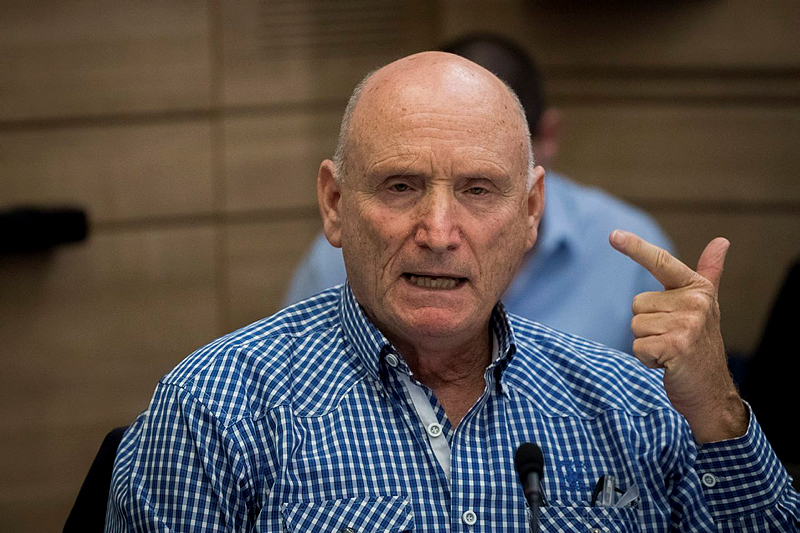“For years, they’ve been building highways into Sinai. We’re the target,” says Maj. Gen. (ret.) Yitzhak Brik.
By Batya Jerenberg, World Israel News
Egypt is not necessarily a partner Israel can count on to help it against Hamas, and could turn on it even though there is a peace treaty between the two countries, a former top general said Monday in an interview with Arel Segal on 103FM Radio.
Israel knows, for example, that there are several tunnels dug under the Philadelphi corridor, the 14-kilometer (8.7 mile)-long border between the Gaza Strip and Egypt, some of which are enough big enough to let trucks through. These tunnels have been used over at least the last 17 years of Hamas rule to spirit enormous quantities of weapons into the coastal enclave, and the IDF believes that without controlling the area and shutting them down, Hamas will always be able to rearm and restart its genocidal war against the Jewish state.
Discussions with Cairo over what to do about this have so far borne no fruit and, said Maj. Gen. (ret.) Yitzhak Brik, the problems go even deeper.
“Everyone knows that smuggling goes on from the Sinai under the corridor,” Brik told Segal. “The IDF doesn’t want to sit along this corridor for the next few years, because it doesn’t have the manpower to do it and because there will be a lot of casualties, so it wants the Egyptians to do it. But today there is a very big problem with Egypt. They are not ready to do it in our place.
“They are also not ready for us to do it from this [Gazan] side of the corridor, and they are threatening that if we start doing all kinds of things that will cause masses to move into [the] Sinai [Desert], then they will suspend the peace.”
There is a clear danger to Israel if this happens, warned Brik.
“Although [Egypt] is a poor country, it is the most powerful army in the Middle East today – 4,000 tanks, 2,000 [of them] modern, hundreds of the most modern planes, the navy is one of the best there is,” he noted. “For years they have been building highways into Sinai. We are the target. They’re not building the army for anywhere else. That means, with one decision to cancel the peace, they become an enemy country and we don’t even have a single division to stand against it, because of the cuts we made to the military.”
In December, former intelligence officer Col. (res.) Eli Dekel, warned in an interview on the TOV Jewish news site that satellite photos from June 2023, well before the war with Hamas, revealed that Egypt had exchanged two forces of very old tanks for its most modern ones in both El Arish and Refidim.
The Egyptians were also digging dozens of tunnels in the Sinai Desert at a cost of some $100 million, whose purpose, he believed, was “to store strategic weapons… surface-to-air missiles.” Neither the advanced tanks or missiles, he noted “were needed for the battle against ISIS,” the Islamic extremists who are still assumed to have clandestine forces in the desert, but are not a great threat to Egypt.
Much more recently, just a few days before the interview, meaning well into the Israel-Hamas war, Dekel said that an Egyptian government channel had aired a segment on the power of the Egyptian navy, which had stated that the sea force had two purposes, the major one being “a possible confrontation with Israel.”
“Military intelligence must pay attention to Egypt,” he concluded.


